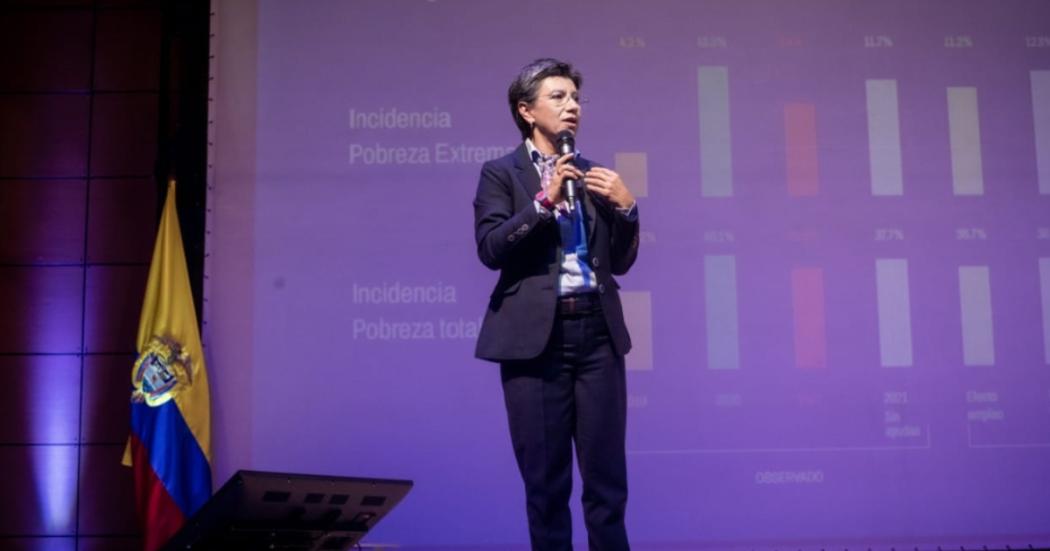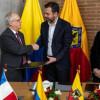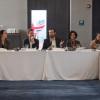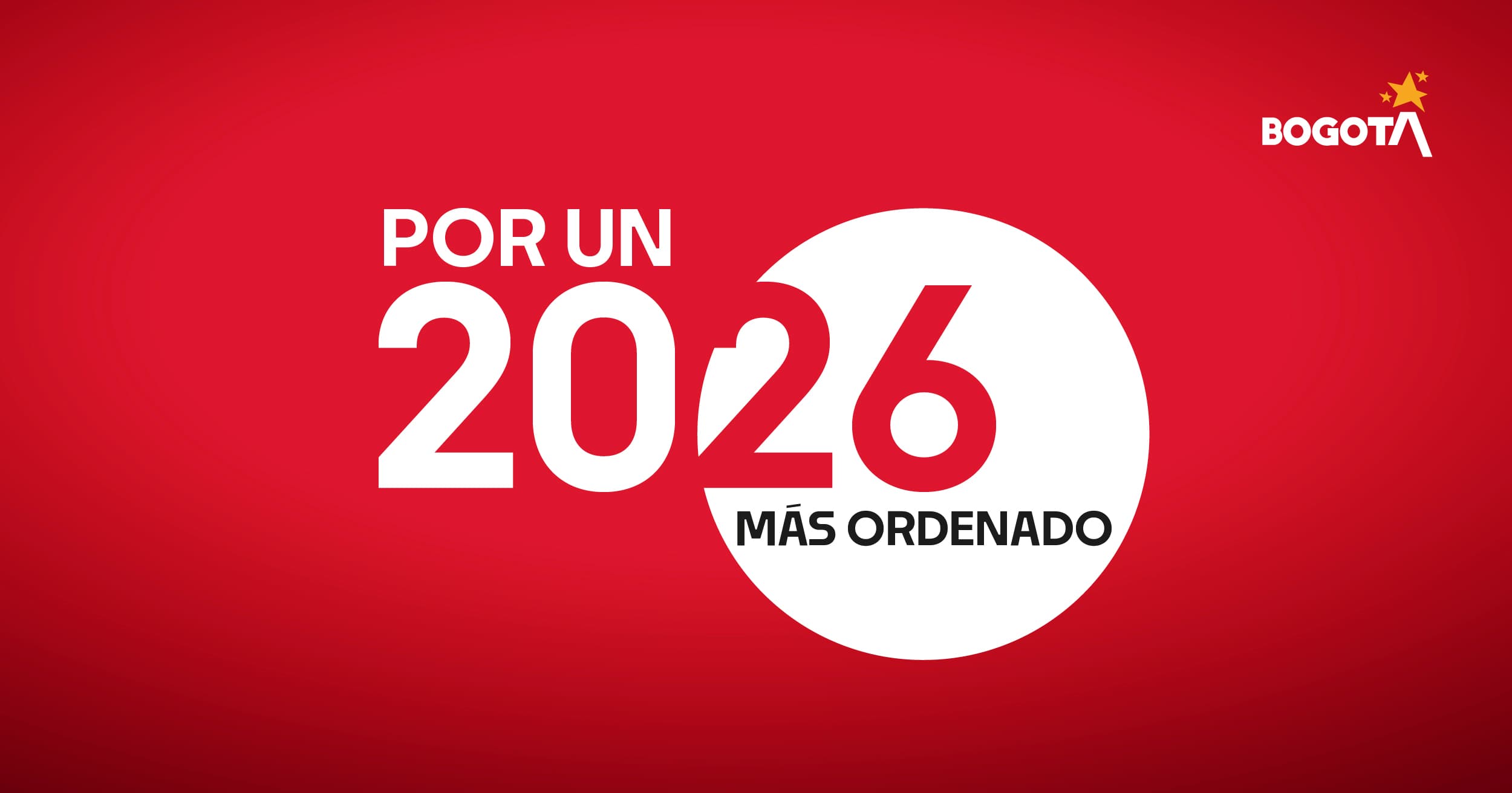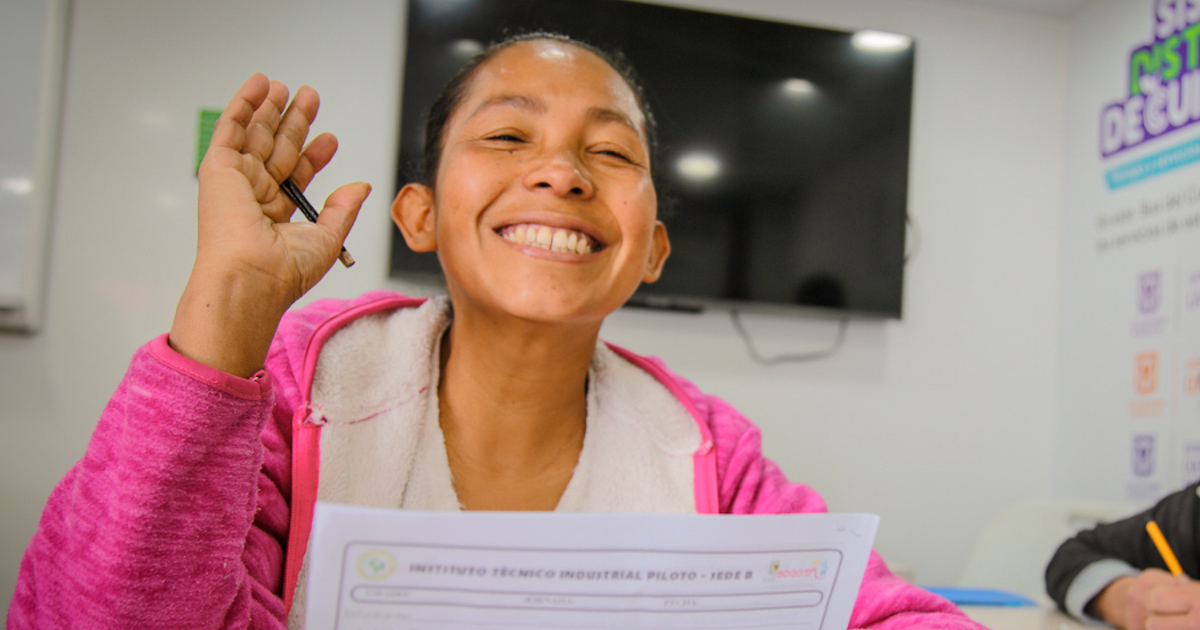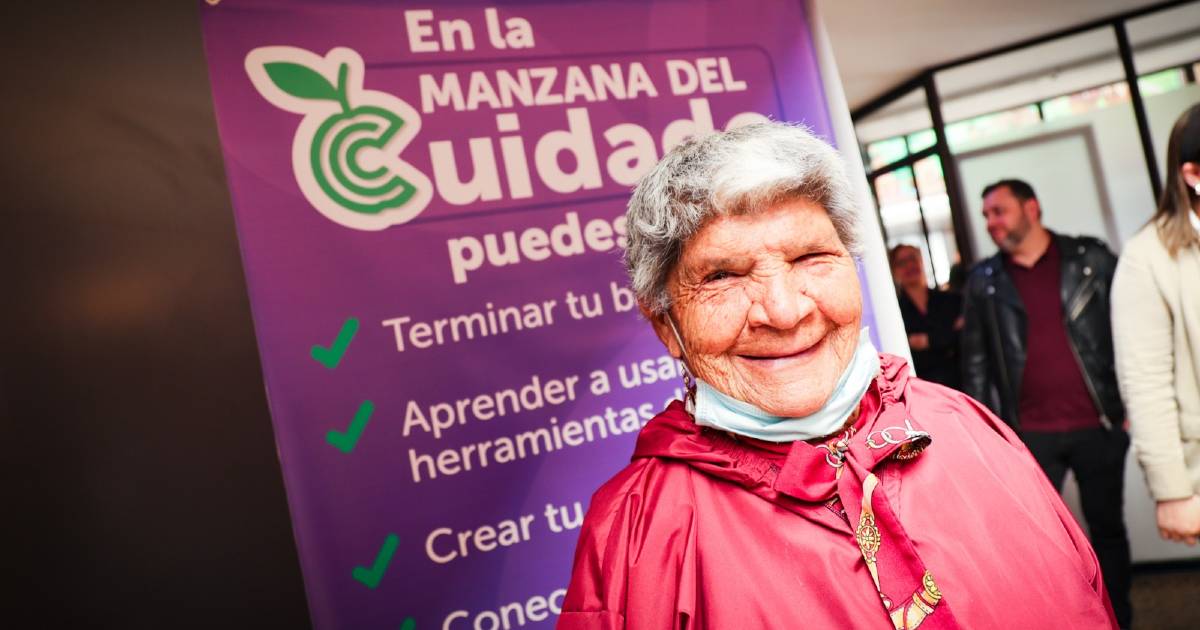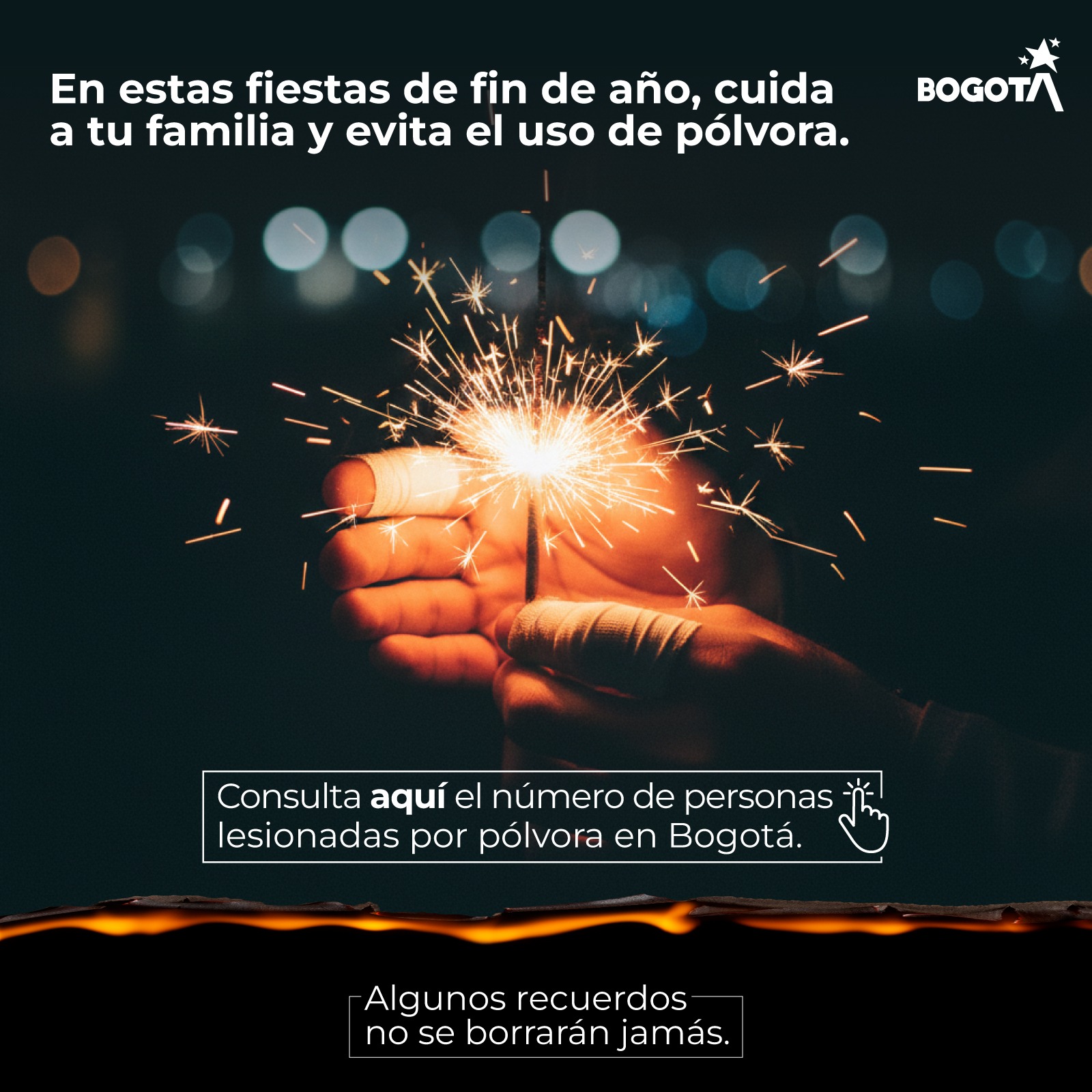The Mayor of Bogotá, Claudia López, presented the first Voluntary Local Report on the fulfillment of the Sustainable Development Goals in the city to the United Nations system, the national government, academia, and the general public.
The report was led by the Secretary of Planning, María Mercedes Jaramillo Garcés, and identifies five priorities for Bogotá: poverty reduction, gender equality, decent work and economic growth, sustainable cities and communities, and climate action.
The report was presented with the support of the University of Los Andes, the National Planning Department, the Deputy Resident Representative of the United Nations Development Programme (UNDP) in Colombia, and the Bogotá Cómo Vamos (How we are doing in Bogotá) initiative, among other sectors.
In this tweet, the Mayor refers to the Voluntary Local Report on the fulfillment of the Sustainable Development Goals in the city:
Presentamos el #ReporteODSBogotá para que la ciudadanía conozca cómo avanzamos en nuestro compromiso de cumplir los Objetivos de Desarrollo Sostenible.
— Claudia López Hernández (@ClaudiaLopez) March 16, 2023
La buena noticia es que vamos mejorando en todas las mediciones, sobre todo en la eliminación de la pobreza extrema. pic.twitter.com/ONBeidQD7Y
"If we do not achieve the Sustainable Development Goals, we will disappear as a species on the planet. We have lost a lot of time in achieving important results. The combination of climate emergency, inequality, social injustice, and the risk of affecting productivity conditions, which allow companies and people to develop their full potential, is a combination that puts us in great difficulty," explained the Mayor.
Likewise, the rector of the University of Los Andes, Raquel Bernal, highlighted the post-COVID recovery, the reduction of poverty, and the contribution of the Care Blocks.
"From the University of Los Andes, we are committed to contributing to the achievement of the goals. We recognize the voluntary efforts of the city government in the fight against poverty. Thank you, Mayor, for your leadership and for making Bogotá one of the pioneers in this evaluation that will give us a better future," she emphasized.
The Voluntary Local Report facilitates monitoring of SDG compliance
In Bogotá, compliance with the goals that are at the center of citizens' concerns and that, in turn, help to achieve other goals, has been prioritized. In this sense, actions have focused on: ending poverty, achieving gender equality and empowering all women and girls in Bogotá, taking urgent measures to combat the climate crisis and its effects, and promoting the development of a sustainable city.
The efforts of the city government are concentrated on programs and projects that contribute to social and economic reactivation, the preservation of jobs, household economic capacity, and the business fabric, in order to mitigate the negative effects of the social and health emergency caused by COVID-19.
Regarding each of the five prioritized SDGs - ending poverty, gender equality, decent work, and economic growth, sustainable cities and communities, and climate action - the Voluntary Local Report presents a context of the current situation in Bogotá, including an overview of the major commitments, shows progress in meeting SDG targets, and presents a reflection on the short- and medium-term challenges for Bogotá.
Bogotá is focused on achieving the goals of the Sustainable Development Goals through three instruments: The Development Plan 2020-2024, the Master Plan 'Bogotá Reverdece 2022-2035', and the District Public Policy ecosystem.
SDG 1. End of poverty
By 2021, the monetary poverty rate in Bogotá had reached 35.8%, a 4.3% reduction from 2020. In addition, extreme poverty and multidimensional poverty in 2021 were at 9.4% and 7.5%, respectively. This means that there was a reduction of 191,660 people in extreme monetary poverty and 158,209 in total monetary poverty, thanks to the implementation of strategies, including the Guaranteed Minimum Income, which has benefited more than 1.2 million households with cash transfers.
Furthermore, through the Territorial Integral Social Strategy, which is a model of local territorial management aimed at addressing the comprehensive needs and problems of communities and territories, Bogotá implemented the 'Return to Opportunities' tactic which identified and characterized 66,170 young people, visited around 23,000 households, and provided support to over 73,000 young people through comprehensive prevention activities, legal and psychosocial guidance.
"In the pandemic, we had to look for and survey people who were suffering from hunger. Previously, monetary transfers were made to approximately 70,000 people, but in 2020 they were made to 834,111 people; then, in 2021, to 1,010,752; and in 2022, to 905,398, for a total of 1,237,337," highlighted the Mayor.
SDG 5. Gender Equality
The administration of Claudia Lopez has designed the Care System, aimed at recognizing the care work performed primarily by women.
Currently, this system operates through 16 Care Blocks that correspond to geographical areas that concentrate the supply of services with a proximity criterion, allowing people to access these spaces without having to walk more than 20 minutes. This facilitates the elimination of access barriers to services and reduces the time dedicated to the care, allowing for other activities such as education and entertainment. As of March 2023, the Care System provided around 332,000 services through the care blocks.
"The greatest revolution in all senses is climate change and actions to mitigate it, but the change of women's roles in society is the other great revolution, because women have always had roles of reproduction and care. Now we are living in an absolute and positive revolution. Producing gender equality is absolutely necessary, promoting it is vital," she emphasized.
The Mayor added that "the Care Blocks offer training services, well-being, income generation, professional care, and recreational activities, as well as workshops and public campaigns for cultural change. That is why at the end of this administration we will have 20 care blocks, and the Master Plan plans to leave 45 care blocks."
SDG 8. Decent work and economic growth
Bogota approved and began the implementation of the Marshall Plan to support business formalization through discounts on financing for registration and renewal of commercial registration, progressive rates for Industry and Commerce Tax for those who formalized during 2020, and the design and promotion of microcredit and credit programs aimed at natural or legal persons who were in the informal sector.
Likewise, through the Investment Promotion Agency Invest in Bogotá, which is a public-private initiative between the Bogotá Chamber of Commerce and the District Government to promote local businesses internationally, 35 projects were supported in 2021 (15 new and 20 reinvestment), with an investment of over 101 million dollars and the generation of more than 11,000 jobs.
"It is not just about having lower unemployment, but also reducing the unemployment gap between women and men to less than one percentage point. To date, we have achieved 98.2% employment recovery from the pandemic. More than 176,000 people have benefited from district training programs for work; 480,000 jobs have been generated or managed, and the goal is to reach 600,000 jobs," said the Mayor.
SDG 11. Sustainable Cities and Communities
The 2022-2035 Master Plan includes strategies to bring citizens closer to the main goods and services offered, taking advantage of the concentration of productive activities in the same location, and generating proximity to housing through the consolidation of green mobility corridors that reduce travel times.
In terms of improving mobility systems, expansion of stations for Bus Rapid Transit System Transmilenio, deployment of over 1,400 electric buses, construction of cable car infrastructure in Ciudad Bolívar and San Cristóbal districts, progress on the first line of the Metro, and construction of feeder corridors for this first line and sections of Avenida 68 and Avenida Ciudad de Cali stand out.
"As long as I am the Mayor, the construction of the first line of the Metro will continue. That is why the goal is to achieve 25% of its execution in this administration. On the other hand, we are recovering the rail network with the Regiotram de Occidente, which will be Colombia's first electric suburban train. We also need to build the Regiotram del Norte and, in addition to the second line of the Metro, we need to build the third line that will start from Soacha," she reiterated.
SDG 13. Climate Action
In 2020, Bogota was the first city in Latin America to declare a climate emergency, which meant establishing the issue as a priority for public management that requires resources and urgent actions to strengthen planning and implementation processes for adaptation, mitigation, and resilience to climate change.
In 2021, Bogotá adopted the Climate Action Plan to reduce carbon emissions by 2050 to achieve a balance known as Carbon Zero. The formulation of a strategy to accelerate the achievement of the SDGs is also underway.
All the actions carried out demonstrate Bogotá's commitment to the SDGs. However, poverty resulting from the effects of the pandemic, migration, and the global economic crisis has impacted the achievement of the SDGs. Therefore, the city urgently needs to accelerate the pace of what it is doing and improve its commitment to sustainable development.
We are less than 10 years away from the deadline set to meet the goals of the SDG Agenda, that is why the Secretariat Planning of Bogotá is moving forward in the formulation of a strategy to accelerate compliance with the Sustainable Development Goals that includes actions to strengthen the articulation between the different planning instruments, improving the quality of the statistical information base for monitoring compliance with the SDGs, and the consolidation of the governance structure that allows the city's results to be maximized.
"The 2030 Agenda requires the decisive action of local and national governments, civil society, the private sector, and academia to achieve the SDGs," emphasized the Mayor.
